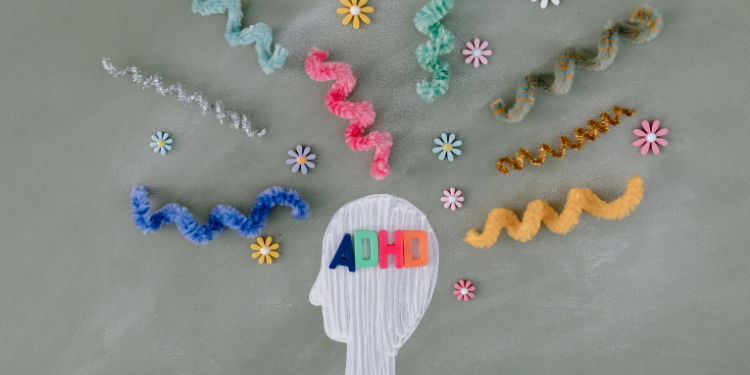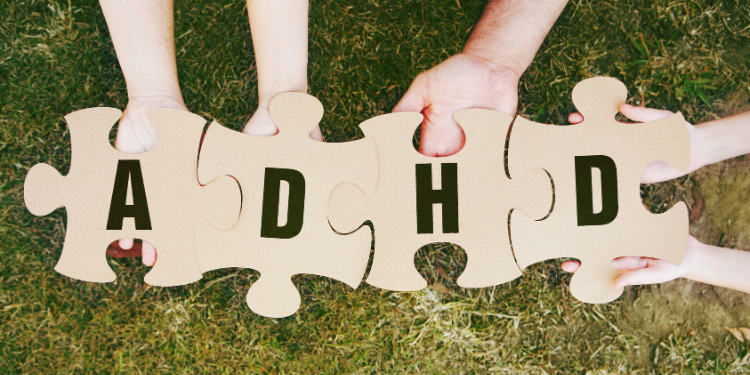If reading this article raises significant concerns for you, please reach out for help. Get in touch with your GP or if you are very distressed, please phone a help line right now: Lifeline: 13 11 14 or the Butterfly National Help Line 1800 334673 which operates 8am-12 midnight, 7 days a week.
Eating disorders are surprisingly common. Over 1 million Australians – about 4% of the population – are currently living with an eating disorder. The COVID-19 pandemic has led to an increase of eating disorders and disordered eating behaviours, with Australia’s Butterfly National Helpline receiving a 48% increase in contacts over the past year.
There are men and women, old and young, children and youth, who are living with an eating disorder. They are part of our church communities. For many, their condition remains invisible and silent. The aim of this article is to help us understand eating disorders from both a medical and Christian perspective. It will provide tips and strategies about how we can support and respond to this mental illness, as well as some recommended resources and information.
What is an eating disorder?
Ella was part of a bible study group. Whenever there was dinner together, Ella never ate. She would say she had already eaten or she would turn up after the meal. Anna was also part of this group and she began to notice that she never saw Ella eating and wondered why.
Jenny was dreading the dinner after church this week. She didn’t like any of the clothes she tried on – she hated how she looked and her mind was full of self-loathing and disgust and she looked far from her idea of ‘perfection’. She decided that the only way she could make herself perfect and attractive to her church community was to eat the bare minimum. When she got home later that evening, she realised that she had no idea what the sermon had been about, nor could she remember what she had talked about over dinner – her mind had been consumed by food and weight.
Mark had always thought he was too skinny and dreamed of being fit, toned, muscular and attractive. He joined a gym and began a weights program with a personal trainer. For the first time in his life, he noticed changes in his body that he really liked and received compliments about his appearance. He began noticing that serving at church was getting in the way of his gym workouts. One Sunday, when scheduled to serve on the music team, he felt so anxious about missing his second gym session of the day that he asked another guitarist to fill in for him and headed to the gym instead of church.
Ella, Jenny, and Mark all have eating disorders and they all have a Christian faith. Their battle with eating and body image, however, is largely invisible and their church communities are unaware that they face this struggle.
An eating disorder can affect anyone regardless of size, age, gender, profession, cultural background, faith preference, sexual orientation or socio-economic status. Eating disorders are characterised by abnormal eating habits and disturbances in behaviour, thoughts, and attitudes towards food, eating, the body, weight, and shape. The condition is far more than a diet gone wrong or a lifestyle choice. It is a life-interrupting health crisis.
No single cause for eating disorders has been identified, but there are a number of contributing factors that are understood to put people at risk of developing one. These are different for each person, but can include:
Genetic vulnerabilities or predispositions – biological factors which can show up in a family history of the illness. In those predisposed to the illness, eating disorders are often switched on by losing weight and then neurobiology takes over as malnourishment changes brain function. In this way, a person can become trapped in the illness because brain changes mean they are no longer able to make appropriate choices.[1] It is important to note, however, that families are not to blame for the condition and family members have the potential to be the patient’s most effective support in treatment.
Psychological factors – personality traits such as perfectionism, being a high achiever, sensitivity, and low self-esteem are common in people with eating disorders.
Social or cultural influences – fat phobia, idealising thinness for females and a lean, muscular body for males, airbrushed/unrealistic images in mass media, internalisation of the Western beauty ideal and the war on obesity are all believed to contribute to eating disorders.
Body dissatisfaction leading to weight control behaviours – dieting is the most common risk factor leading to the development of an eating disorder.
Times of transition – peak presentations often occur during times of change, such as onset of puberty, finishing school, starting university or full-time employment, retirement, empty-nesting, divorce, separation, and relationship breakdown.
There are high-risk groups – including athletes and performers, where weight and performance are linked. Trans and gender diverse people and those with diabetes experience unique risk factors that mean they are more vulnerable to developing an eating disorder. Discrimination, trauma, bullying, abuse, and violence are other risk factors. Women have long been considered at greater risk but there has been an under representation of males in eating disorder research and there is a growing awareness of how men are impacted.
How eating disorders develop
One very common misconception is that an eating disorder develops due to vanity. What may be noticeable are things such as restricted diet, excessive exercise, calorie (or kilojoule) counting, or body checks and we may think that this is driven by a desire to improve their body shape or image. These behaviours, however, can begin in an attempt to gain a sense of control and feel safe during stressful times when they are feeling out of control (such as the pandemic). They may also be a way of giving expression to complex and overwhelming emotions.
Paradoxically, the condition ends up causing distress and controlling them. While eating disorders may begin as a mechanism to manage difficult feelings, the condition causes further emotional suffering. The level of self-hatred accompanying an eating disorder is astounding. Living in the depths of an eating disorder can feel like a prison. The ‘eating disorder mind’ takes over and a sufferer faces intense torment and backlash for doing or considering doing the thing they are being told not to do. This rhetoric is like an internal war, which is constant, distressing and often heightened during mealtimes. Food becomes unsafe and their body cannot be trusted. Underlying negative beliefs about themselves prevent them from feeling worthy, deserving, or capable of recovering.
Types of eating disorders
There are many different types of eating disorders. They include:
Anorexia Nervosa (AN) is characterised by restrictive food intake, an inability to maintain a healthy weight, intense fear of weight gain and disturbed body image. There is a restricting subtype and a binge eating/purging subtype.
Bulimia Nervosa is characterised by episodes of bingeing (eating a very large amount of food quickly and secretly) followed by purging (compensatory behaviours that may include vomiting, fasting, exercising, or taking laxatives). This can become a dangerous and uncontrollable cycle which can remain undetected for a long time.
Binge Eating Disorder (BED) is characterised by episodes of bingeing where people feel like they have lost control, without the compensatory behaviours. Bingeing often occurs following stress, upset or boredom. During the pandemic, the greatest increase was in binge eating behaviours. Most research indicates that BED impacts men and women in equal number.
Other Specified Feeding and Eating Disorders (OSFED)is diagnosed when a person presents with many symptoms, but these do not meet the full criteria for other eating disorders. This is not to say that an OSFED diagnosis is any less serious or awful. All eating disorders are dangerous and distressing. OSFED is the most common eating disorder. One example is Atypical Anorexia which is more prevalent than Anorexia Nervosa. A person with Atypical AN meet all the same criteria of AN except that, despite significant weight loss, their weight remains within or above the normal range.
PICA is characterised by eating non-food items such as ice, chalk, clay, soap, dirt, shampoo, or paper.
Avoidant/Restrictive Food Intake Disorder (ARFID) is characterised by extremely selective eating (far more than just picky eating) with very little variety in what will be eaten, resulting in malnutrition. This is not due to body image disturbance but a result of anxiety, phobia of food (perhaps after choking) or sensory issues with food.
“Orthorexia” is a newer eating disorder (not currently officially recognised but being given growing recognition) characterised by an obsession with healthy or ‘clean’ eating.
Body Dysmorphic Disorderis officially classified as an Obsessive Compulsive and Related Disorder rather than an eating disorder, but often co-occurs with an eating disorder. It occurs when a person becomes preoccupied with one or more perceived defects or flaws in their physical appearance that are not apparent to others. A sub-type is Muscle Dysmorphia, which occurs almost exclusively in males.[2]
Warning signs and symptoms
It is important to understand that eating disorders are secretive illnesses, so many of the symptoms and warning signs may be invisible and unrecognised. Those with the condition will go to great lengths to conceal their behaviour, making eating disorders difficult to identify. In our society, where weight loss and dieting are complimented, many people do not realise they have developed an eating disorder until it has become ingrained and chronic. Eating disorders manifest in a wide range of physical, psychological, and behavioural symptoms. You might observe some of the following:
Physical signs – sensitivity to the cold; weakness; fatigue and lethargy; dizziness and fainting; disturbance in menstrual cycle; signs of damage from vomiting such as swollen cheeks, sores on knuckles and eroding teeth. While sudden weight loss or fluctuations in weight can be a symptom, it is very important to understand that most people with an eating disorder look completely normal.
Psychological signs – preoccupation with food, body shape and weight; feeling anxious or out of control around food; rigid thinking patterns; distorted body image; using food as comfort or punishment; defining their self-worth by their body.
Behavioural signs – excessive and extreme dieting (fasting, avoiding whole food groups); frequent weighing; changes in food preferences; restricting, bingeing, purging; compulsive exercise; laxative or diuretic abuse; ritualistic or secretive behaviours around food.
The impact of an eating disorder
The consequences of an eating disorder can be physically debilitating and emotionally devastating. It affects every organ of the body – the brain, heart, oesophagus, stomach, bones, even teeth and hair. Anorexia Nervosa has the highest mortality rate of any psychiatric condition and the mortality rate for people with eating disorders is six times higher than that for people without eating disorders. People with Anorexia Nervosa are 18 times more likely to die by suicide relative to the rest of the population and individuals with Bulimia Nervosa are seven times more likely to die by suicide. Co-morbidities (i.e., experiencing another mental health condition at the same time) are common and often an eating disorder may be at the core of other mental health conditions, such as depression and anxiety.
Eating disorders are socially impairing illnesses. Social consequences include withdrawal, isolation, loss of relationships, financial stress due to treatment costs and sometime loss of capacity to work or study. Typical life experiences such as education, travel, marriage, and parenthood may be delayed or missed. An eating disorder impacts not just the individual but also their entire family. For children and adolescents, many weeks and months of school may be missed as ‘life stops until you eat.’ The impact on caregivers may include stress, loss of income, disruption to family relationships and withdrawal from friends.

Christians and eating disorders
As mentioned, eating disorders can impact anyone, and Christians are not immune. An eating disorder presents unique challenges for Christians. These include:
Hospitality – food and eating are often a normal part of church life. For a Christian with an eating disorder, refreshments after the service, a meal shared with a bible study group, or being invited to a meal at someone’s home can become barriers to church attendance and doing life together.
Spiritual – distorted thought patterns and the long-term nature of the condition may lead to doubts about God’s love, care, and his character. Their suffering is often misinterpreted as God’s wrath and condemnation. The illness can twist a loving Father into a punishing tyrant. Bible messages about fasting can be taken to extremes. Jesus’ command not to be anxious or afraid can be inferred as rebuke.
Conversely, the suffering of an eating disorder can drive a person into God’s arms. Enormous relief and reassurance can be found in a Father who knows us intimately, whose face is always turned towards us in kindness, love, and grace, who cares about us personally, is always on our side and wants to comfort us.
Why do Christians get eating disorders?
The onset of sin in our world has touched everyone and everything. We are all too familiar with our own character flaws and moral failings, but the impact of the Fall extends beyond the spiritual dimension to every aspect of who we are. Living in a broken world means that our bodies and minds are broken. We have flaws in our genetics, brain chemistry, bodily functions, patterns of thinking, emotional responses, etc. All of us are affected by this brokenness in different ways and to different degrees. Some of us have weaker physical constitutions and are more prone to illness. Some of us are more psychologically vulnerable. But none of us are free from external and internal factors that impact our physical and mental wellbeing.
So, mental illness is one of the consequences of a world beset with sin, and eating disorders are one manifestation of that. Faith in the Lord Jesus Christ does not guarantee protection from eating disorders. And while our responses to physical and mental hardship may, at times, be found wanting, we must not be critical of those experiencing these challenges. In the same way that we do not hold people responsible for a broken bone or a cancer diagnosis, individuals should not be blamed for developing a mental illness such as an eating disorder. Those who have to endure such challenges need our support, not our judgment.
Treatments for eating disorders
Eating disorders require expert and specialised treatment. While over one million Australians live with an eating disorder, less than a quarter receive treatment or support. The earlier treatment is sought, the more chance of recovery. Effective treatment is long-term, given the high rates of relapse associated with this disorder. While the path can be long and difficult, full recovery is possible with support and commitment.
The most effective treatments are evidence-based and informed by data, clinical experience, and patient/family feedback. These include:
Psychological treatments – such as Cognitive Behavioural Therapy (CBT or Enhanced-CBT). The therapist helps the person consider the usual pattern of their thoughts and feelings and teaches skills for developing more helpful thinking patterns and coping strategies. Maudsley Family Based Treatment is recommended for children and adolescents, where parents play an active role in the management of the child’s eating.
Outpatient treatment – a multi-disciplinary approach involving the patient, psychiatrist, psychologist, doctor, and dietician working collaboratively. Some intensive outpatient programs include regular support around meals and teaching skills of distress tolerance and emotional regulation.[3]
Inpatient treatment – hospitalisation or residential programs can be very helpful if a person is finding it too difficult at home. Being in hospital offers full meal support as well as emotional support and the opportunity to learn skills for managing distress. Many hospitals offer group therapy. Following hospitalisation or residential treatment (which can last some weeks to months), it is important to step down slowly into an outpatient program and to have an individual treatment team for follow up.
Cost can be a significant barrier to treatment. In 2019, new Medicare items were introduced for Australians experiencing eating disorders. This allows them to access up to 40 subsidised psychological sessions per calendar year and up to 20 subsidised dietetic sessions. A GP can talk through this and assist with assessing eligibility.[4]
Early detection and intervention are vital, yet the level of training in detecting eating disorders among primary treatment providers has been inadequate. Consequently, by the time treatment begins, the condition has often become chronic. After much advocacy, this is now improving. The demands for support, however, are much higher than what is available. In 2021, the federal government announced a ten-year national plan to guide research and transform the treatment and care for people with eating disorders. Trials delivering treatment in the early stages of eating disorders via digital pathways are underway, accessible to all regardless of their location. Other innovative solutions are also being explored. Organisations are working hard to use the latest research and evidence to create a better system of care for people with eating disorders.[5]
A Christian perspective can greatly assist eating disorder recovery
Whether it’s advertisements or social media, we are swamped with images that suggest our desirability and sense of worth is tied to how we look. God offers us a whole new perspective on where to find our worth. Being made in God’s image means that every person is of immense value. As the Psalmist says, he knitted us together and we are fearfully and wonderfully made (Ps 139:13-14). Each one of us is his masterpiece. Moreover, in Christ, we are his beloved children – his treasured possession and precious in his sight (1 John 3:1; Is 43:4). In eating disorder terms, our identity is rooted in Christ and not in our appearance. Our weight is not our worth. If you have an eating disorder, it may be a struggle to take hold of the full implications of the wonderful truth of who we are in Christ, but as we seek to do so, it can be of real benefit.
The Bible also affirms that we are embodied creatures. Our bodies are not a lesser part of us; they are us. Having a body is a helpful reminder of our limitations and that we are dependent beings. We have needs, e.g., for regular food and rest. This is how God made us. It’s normal to eat and drink as this is his design for us. And as our Maker, we are completely dependent upon him for ongoing life and the provision of our daily needs (Ps 104; Acts 17:28). With thankful hearts, we can welcome the food and other necessities that he graciously provides.
Another relevant truth to bear in mind is that God is sovereign and in control of all things. Again, this can be hard to make sense of when an eating disorder endures on and on with all sorts of difficult consequences. But real hope is to be found in the knowledge that Christ will return and put all things right. The day will come when eating disorders will be no more and this hope helps one to endure. Until that time, God provides doctors and others with expertise to offer helpful treatments, as well as church family and others to support us through tough seasons.
Helpful steps if you have this condition
If you are reading this and recognise that you are struggling with an eating disorder, it is important that you reach out and seek help. Don’t wait. Don’t try to fix it on your own or wait until you feel or look worse. You are sick enough right now. You need and deserve help now. A good first step is to visit your GP. It is important that your GP is someone you trust and can really talk to honestly. Your GP can listen, run some blood tests to check how your body is coping, and refer you to professionals who specialise in treating eating disorders. Unfortunately, there is likely to be a significant waiting time before a specialist professional is able to see you, so it is important to start the process as soon as possible.[6]
In the meantime, there is support available. You can call the national helpline for eating disorders as often as you need. You can attend a support group either in person or online. You could link up with a peer mentor (someone who has recovered from an eating disorder, who can support and guide you). You can begin keeping a journal of your food and feelings, which will help both you and your treatment team identify triggers and what helps you cope.[7] You could also talk to close friends, family and church family, to share the burden of what you are going through. Tell them what you need, as they won’t be able to read your mind and they may not know what is helpful or unhelpful. You could share this article with them. Ask them to pray for you. Try to keep up healthy spiritual disciplines such as praying, reading the Bible and meeting with God’s people, but try not to be down on yourself if these things are too difficult. So, resources and support are available. You don’t have to keep suffering alone and in silence.
Healing from an eating disorder is a messy, imperfect process with steps forwards and backwards. Relapses and slip ups are a normal part of the process. You are not wasting your therapist’s time. You are not using up services other people need more. You deserve help. Recovery doesn’t look the same for everyone. It takes time. It takes patience. It takes everything you’ve got. It is a choice. It might get harder before it gets easier. It’s okay to take it second by second, minute by minute, hour by hour, day by day. Sometimes the fear won’t go away, so you’ll have to do it afraid. Sometimes it will be too hard and you will need more help and that is okay. It might help to consider what you are gaining by recovering – relationships, hobbies, freedom, health, time, the capacity to serve Jesus. It will be hard to stay motivated in recovery if you are not clear of why you want to recover. Recovery takes a lot of time, effort, and planning, but staying sick takes your whole life. It’s one step at a time. Just focus on the next step.
Remember that no matter how alone you feel, you are not alone. God is with you, he is your rock and your strength, he goes before you, and will never leave or forsake you. Our God is almighty, powerful, and good. He will carry you when you need him to, even when you feel like giving up or giving in. Even when you’re struggling to hang on to him, he will hang on to you.
[1] The most recent Australian research released a ground-breaking discovery describing a potential biomarker to identify a person’s risk of developing Anorexia Nervosa. The research proposes that a specific type of twitching eye movement can effectively identify those with and those at risk of developing an eating disorder. This would suggest a genetic predisposition to the illness. If further work confirms these findings, this biomarker will be used as a screening tool for both early intervention and prevention of the illness. To find out more, see this short overview by Andrea Phillipou. Full report: ‘A biomarker and endophenotype for anorexia nervosa?’ by Phillipou Andrea, Rossell, Susan L, Gurvich, Caroline Australian & New Zealand Journal of Psychiatry, 18 September 2021 https://journals.sagepub.com/doi/10.1177/00048674211047189
[2] For more information on different types of eating disorders, these organisations provide helpful overviews:
[3] An extensive list of support groups has been included in the resources section at the end of this article.
[4] Information on Medicare Eating Disorder Plans https://butterfly.org.au/health-professionals/understanding-medicare-eating-disorder-plans-faqs/ and https://nedc.com.au/professional-development/medicare-items/ and https://nedc.com.au/professional-development/ed-treatment-and-mangement-plans/
[5] Australia’s Eating Disorders Research and Translation Strategy 2021-2031 https://insideoutinstitute.org.au/resource-library/australian-eating-disorder-research-translation-strategy-2020-2030
[6] Butterfly has a referral database for professionals and services nearest you https://events.butterfly.org.au/portal/ReferralSearch/SearchTreatment
Some examples of peer mentoring programs in Australia https://www.eatingdisorders.org.au/find-support/peer-mentoring-program/ and https://qfinder2.health.qld.gov.au/HealthServiceProvider/Index/a99052c9-7637-e611-80d2-00505601056f
Polly Manning holds a Bachelor of Education and taught in primary schools for a number of years. She has recently completed a Certificate of Pastoral Care followed by a Diploma of Christian Studies and is currently working through a Postgraduate Certificate of Pastoral Care for Mental Health. Polly is passionate about education, advocacy, and prevention of mental ill-health for children and adults. She has trained her dog, Henry, to work alongside her as an assistance dog. For fun, Polly enjoys gardening, reading, home decorating and cooking. She also loves serving across various ministries at her church.




